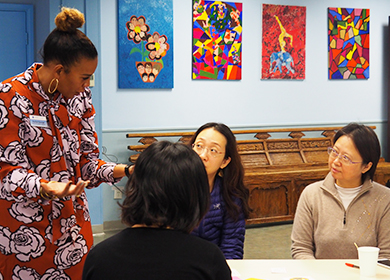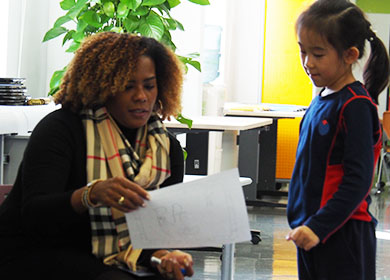Go Back
News
News
Talking about the Coronavirus with Kids
News
07 Feb, 2020
10 : 00
The Yew Chung International School of Beijing community like many others has been affected by the Novel Coronavirus outbreak – the latest strain of Coronavirus to sweep the nation. The virus has left many feeling more anxious than celebratory since the new lunar year and has not only interrupted long-awaited family reunions and brought the country's most celebrated holiday to a standstill, but has also infiltrated nations around the world, raising alarms.
Parents’ anxiety during this period might affect children, too. YCIS Beijing School Counsellor, Rachel George, shared some tips on how parents can communicate the truth about the virus with their children, without scaring them.
First, take care of yourself.Our children look to the key adults in their lives for guidance on how to manage their emotions during times of stress. In order to do this effectively, it is important to be aware of your own emotions and how they may be affecting your behaviour.
Take time for yourself. Try to deal with your own reactions to the situation as fully as possible. You will be better able to help your children if you are coping well. If you are anxious or upset, your children are more likely to feel the same way.
Talk to other adults such as family and friends. It is important not to dwell on your fears or anxiety by yourself. Sharing feelings with others often makes people feel more connected and secure.
Take care of your physical health. Once you are in tune with yourself, you will then be better equipped to not only be aware of your child’s emotions but also better equipped to respond with empathy.
Name that Emotion.Acknowledge and normalize their feelings. Children sometimes are not the best at identifying their feelings- this is where you can assist them in naming their emotions. Allow your children to discuss their feelings and concerns, assisting them in naming them. Are you feeling frustrated, lonely or nervous? Listen. Empathize, and let their questions be your guide.
Reaffirm them that their feelings and reactions are normal and expected. Discuss reasons for different feelings that may occur throughout the day and night. Picture books are great for helping children learn to identify a range of emotions, for discussing situations that might spark these various emotions and for helping children to identify strategies for managing overwhelming emotions. Check out Wilma Jean, the Worry Machine! by Julia Cook and The Worry Box by Suzanne Chiew.
Calm Corner.You can help your child build resilience by teaching them coping strategies they can remember and use on their own. Find your favourite quiet place in the house and try some of these self-regulation tools which the children can use at any time:1. Read your favourite book/s;2. Draw pictures;3. Practice five-finger breathing (trace your hand and breath in tracing towards the finger and out as you trace your thumb, pointer, middle, index and pinky finger)4. Wrap themselves in their favourite blanket;5. Ask for a hug;6. Count to 100 slowly;7. Whisper the alphabet.
Continue with Normal Routines.Routines assist with establishing security and helps children develop self-discipline. At a time where there are more than a few unknowns, make your home a place where a predictable routine allows them to feel safe. Having set times to eat breakfast, snack and lunch along with a few educational bits will keep your children school-ready.
Perhaps conduct a virtual playdate. Allow them to video chat with their buddies to continue their social time.
This article was originally written by TimeOut Beijing Family. To read the article, click here.












